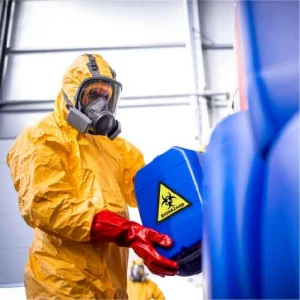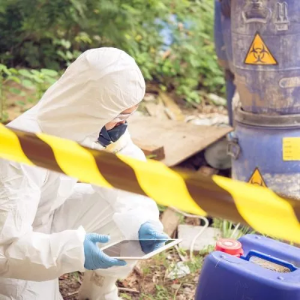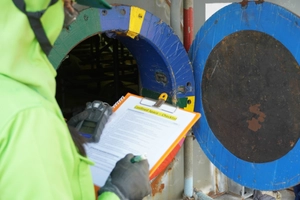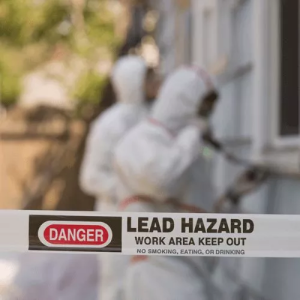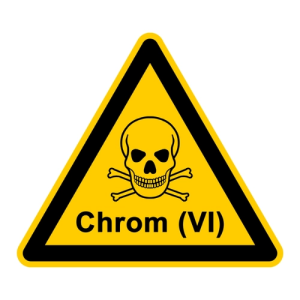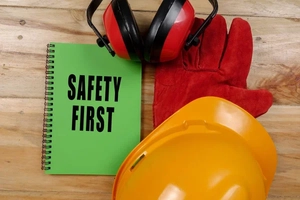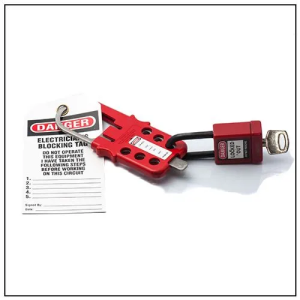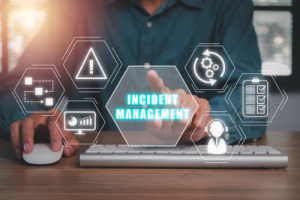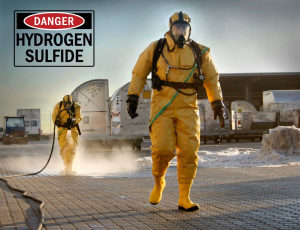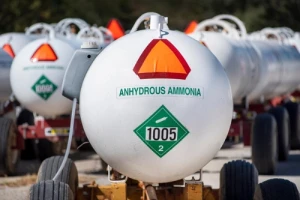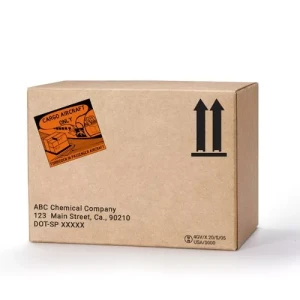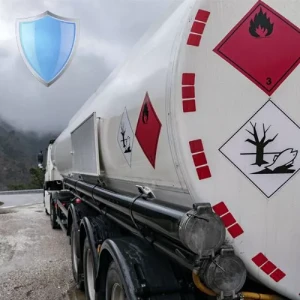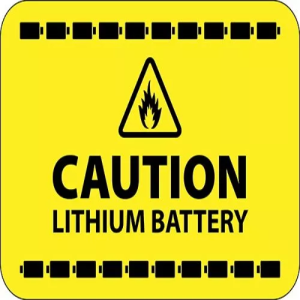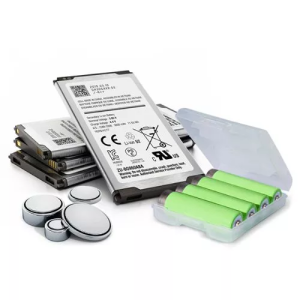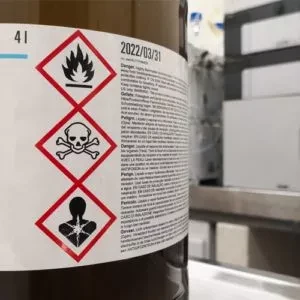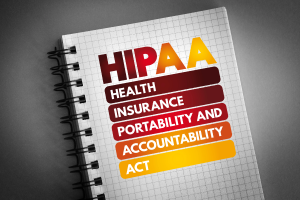Lithium Batteries Awareness Training
- In accordance with U.S. DOT 49 CFR (Transportation)
- Available in:
 English |
English |  Español
Español - Train at your convenience, across all devices
- Audio playback for hands-free learning
- Obtain your certificate immediately after finishing
- SCORM-ready, on-demand digital, virtual instructor sessions, or on-site course offerings
0.1
Bulk Buying
| Employee | Per Seat |
|---|---|
| 2-10 | $39.59 |
| 11-20 | $39.19 |
| 21-50 | $38.79 |
| 51-100 | $37.99 |
| 101-250 | $37.19 |
Course Facts
Training Duration
Learning Type
Course Access Validity
Device Support
Certificate Validity
The Lithium Batteries Awareness Training teaches safe handling, storage, and use of lithium-ion and lithium-metal batteries. It is an essential lithium battery safety training course for workplaces handling these devices.
Modern lithium batteries are highly energy dense. Higher energy density increases risk and makes proper management critical. This includes lithium battery shipping training. Risks depend on battery type, size, and chemistry. Lithium batteries present chemical and electrical hazards. Flammable electrolytes can cause overheating or fires.
This lithium-ion battery training also covers emergency response and first aid. Participants learn to safely manage minor incidents and lithium battery shipment emergencies. Completing this course improves workplace safety and ensures compliance with regulations. It is a practical, hands-on lithium-ion battery safety training solution for professionals.
Who Needs This Lithium-ion Battery Safety Training?
- Employees handling lithium cells and batteries.
- Shipping and logistics personnel transporting lithium batteries.
- Warehouse and storage facility staff.
- Maintenance and repair technicians.
- Manufacturing plant operators using lithium-powered devices.
- Project managers overseeing battery-powered equipment or systems.
Why Choose Our Lithium-Ion Battery Training?
- Learn practical safety techniques for handling and storage.
- Understand chemical and electrical hazards clearly.
- Receive guidance on emergency response and first aid.
- Comply with OSHA and DOT safety regulations.
- Improve workplace safety and reduce risk of accidents.
Lithium Batteries Awareness Training Course Syllabus
This Lithium Batteries Awareness Training course consists of 2 lessons. Students are required to take each lesson in sequential order as listed below.
Introduction
Lesson 1: Lithium Cells and Batteries
This lesson explains the two main types of lithium cells and batteries. Learners will understand why these batteries are regulated during lithium battery shipment and transport. Participants will learn to distinguish between a “cell” and a “battery.”
They will also identify differences between lithium metal and lithium-ion batteries.
The lesson covers hazards of handling, storing, and transporting lithium batteries. It emphasizes safe practices for workplace use, storage, and lithium-ion battery safety training. Learners will gain practical knowledge to prevent incidents during handling and lithium battery shipping training.
Lesson 2: Emergency Response and First Aid
Lithium batteries present serious hazards due to high energy density and flammable electrolytes. This lesson focuses on emergency action plans and lithium battery safety training.
Learners will define a “workplace emergency” and an emergency action plan (EAP). They will understand why lithium batteries add extra risks during handling, storage, and lithium battery shipment.
The lesson covers safety procedures for overheating, venting, or leaking cells. It explains which extinguishing agents are effective for lithium metal and lithium-ion battery fires. Participants will gain practical skills to reduce injuries, protect property, and prevent hazards to surrounding communities.
Final Examination
Frequently Asked Questions
Lithium batteries power devices like laptops, smartphones, smartwatches, medical equipment, and electric vehicles. Their high energy density and flammable electrolytes classify them as hazardous materials (hazmat).
DOT regulations require all employees handling or shipping hazmat to receive proper training. This includes anyone preparing lithium batteries for transport by highway, rail, air, or water. The course covers hazards of lithium-ion and lithium-metal batteries. It teaches safe use, handling, storage, and lithium battery shipping training best practices. Learners also gain knowledge of emergency procedures and first-aid measures.
This ensures safe response to minor incidents or serious emergencies involving lithium batteries. For a broader perspective of the training requirements outlined in Subpart H of Part 172 of the DOT’s Hazardous Materials Regulations (HMR), Section 1.5 of the IATA DGR, and Section 1.3.1 of the IMDG Code, you may enroll in our Shipping Lithium Batteries: Fully Regulated and Excepted Cells and Batteries Training course.
- Learn practical safety techniques for handling and storage.
- Understand chemical and electrical hazards clearly.
- Receive guidance on emergency response and first aid.
- Comply with OSHA and DOT safety regulations.
- Improve workplace safety and reduce risk of accidents.
This is a short course intended to provide basic information about the different types of lithium cells and batteries and the emergency response and first-aid procedures required in handling lithium battery emergencies.
This course is perfect for hazmat employers, hazmat employees, and supervisors of hazmat shipping operations who must possess a basic understanding of the hazards and the best practices for safe use, storage, and handling of lithium batteries to support their work responsibilities.
No, there are no prerequisites for this Lithium Batteries Awareness Training course.
The U.S. DOT and OSHA do not specify how often someone needs to attend this training. Therefore, refresher training is at the employer’s discretion and may be required if there are regulatory changes.
This same Lithium Batteries Awareness Training course can be used for re-training/refresher training purposes.
Certificate of Completion: Immediately after passing the final exam, you can download, save, or print your certificate in PDF format.
Validity: The course certificate is valid for three years.
Renewal: Simply take this course in 36 months to maintain compliance and stay current on regulations regarding transportation of lithium batteries.
COURSE OBJECTIVES
Course Objectives
After completing the Lithium Batteries Awareness Training course, the learner will be able to:
- Understand the difference between lithium metal, lithium-ion cells, and batteries.
- Understand why lithium batteries pose additional safety hazards during handling, storage, and transportation.
- Describe the best practices for the safe use and storage of lithium cells and batteries.
- Summarize the safety procedures to follow if a cell is overheating, venting, or leaking.
- Recall the different types of extinguishing agents required to fight fires caused by lithium metal and lithium-ion batteries.
Choose Your Ideal Training Format:



Virtual Instructor-Led
$199.00/Seat (minimum 10 seats)

Client-Site In-Person
$750.00/Seat (minimum 10 seats)
The ROI of Online Safety Training
Discover the value of our efficient alternative to live training, and calculate your return on investment.


Recommended Courses



For Corporate Orders and Inquiries please reach out to our sales team at (310) 498-0546
By signing up you agree to receive marketing emails.
Be assured we will never spam you!

 EN |
EN |  ES
ES





